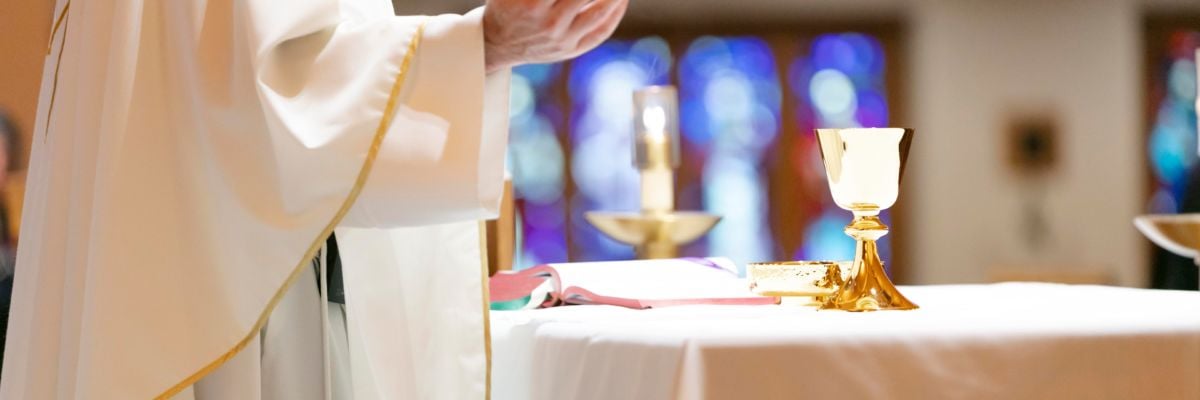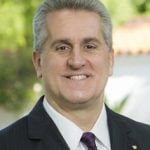
Question:
Answer:
Let’s consider your second question first because, while both are errors, the second is the more serious matter. No priest or even a bishop can change the translation of the holy sacrifice of the Mass from “for many” to “for all.” Only the Apostolic See, with the confirmation of the pope, can do that. Canon 846 of the Code of Canon Law states, “The liturgical books approved by the competent authority are to be faithfully observed in the celebration of the sacraments; therefore no one on personal authority may add, remove or change anything in them.”
It is true that “for all” was once permitted in the vernacular Mass translations of the Latin rite of the Catholic Church, but this was officially changed as a part of the process of the Church’s offering a more faithful translation of the liturgy—more faithful, that is, to the official Latin text of the Missale Romanum promulgated by Pope St. Paul VI and later revised by Popes St. John Paul II and Benedict XVI.
In answer to your first question, the General Instruction of the Roman Missal (GIRM) 43 clearly provides, “In the dioceses of the United States of America, they [the faithful] should kneel beginning after the singing or recitation of the Sanctus [Holy, Holy, Holy] until after the Amen of the Eucharistic Prayer, except when prevented on occasion by reasons of health, lack of space, the large number of people present, or some other good reason. Those who do not kneel ought to make a profound bow when the priest genuflects after the consecration.”
Notice that, in normal circumstances, the priest alone is presumed to be standing (he has to be in order to genuflect). Of course he is, because everyone else was standing for the prayers of the faithful until the end of the Sanctus. The priest (or priests) alone are to be standing at this point; all other members of the faithful are to be kneeling. There are no exceptions for lectors and EMHCs unless, as noted, there is some extraordinary circumstance(s). Even deacons are to kneel (GIRM 179).



